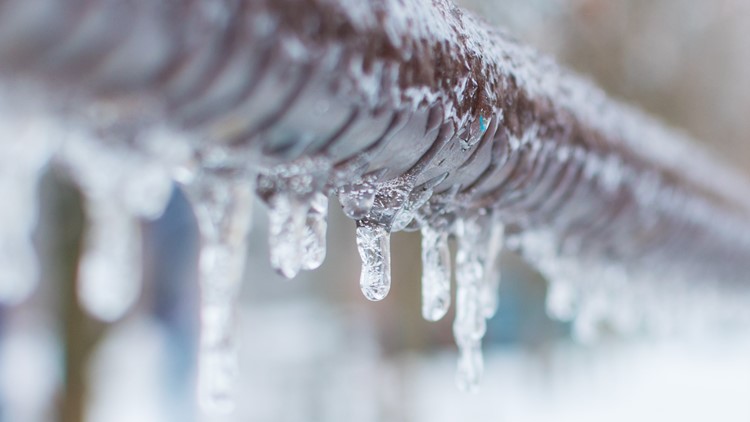Essential Tips for Preventing Frozen Plumbing in Cold Weather Seasons
Essential Tips for Preventing Frozen Plumbing in Cold Weather Seasons
Blog Article
Listed here further down you will find some worthwhile answers all about How to prepare your home plumbing for winter weather.

Cold weather can ruin your plumbing, particularly by freezing pipes. Below's exactly how to stop it from occurring and what to do if it does.
Introduction
As temperatures decrease, the risk of icy pipelines boosts, possibly leading to expensive repair services and water damages. Understanding how to prevent frozen pipelines is crucial for homeowners in cold environments.
Avoidance Tips
Protecting susceptible pipelines
Cover pipes in insulation sleeves or use warmth tape to safeguard them from freezing temperatures. Concentrate on pipes in unheated or external areas of the home.
Home heating methods
Keep interior spaces appropriately heated up, specifically areas with pipes. Open cupboard doors to allow cozy air to flow around pipes under sinks.
How to recognize frozen pipes
Seek decreased water flow from taps, unusual smells or noises from pipelines, and noticeable frost on subjected pipelines.
Long-Term Solutions
Architectural adjustments
Think about rerouting pipes far from outside wall surfaces or unheated areas. Include added insulation to attic rooms, basements, and crawl spaces.
Updating insulation
Invest in top quality insulation for pipelines, attic rooms, and wall surfaces. Proper insulation helps preserve consistent temperature levels and lowers the danger of frozen pipelines.
Safeguarding Outdoor Plumbing
Yard pipes and outside faucets
Separate and drain pipes garden hoses prior to winter months. Set up frost-proof spigots or cover exterior faucets with shielded caps.
Recognizing Frozen Pipelines
What causes pipelines to freeze?
Pipelines freeze when revealed to temperatures listed below 32 ° F (0 ° C) for prolonged durations. As water inside the pipes ices up, it expands, putting pressure on the pipeline walls and potentially creating them to burst.
Dangers and problems
Frozen pipes can cause supply of water interruptions, home damages, and pricey fixings. Burst pipes can flood homes and cause extensive architectural damages.
Indicators of Frozen Water Lines
Recognizing icy pipes early can prevent them from bursting.
What to Do If Your Pipelines Freeze
Immediate activities to take
If you believe icy pipelines, maintain taps open up to soothe pressure as the ice melts. Make use of a hairdryer or towels soaked in warm water to thaw pipelines slowly.
Final thought
Avoiding frozen pipelines needs proactive actions and fast reactions. By understanding the reasons, signs, and safety nets, property owners can protect their plumbing throughout cold weather.
Helpful Tips to Prevent Frozen Pipes this Winter
UNDERSTANDING THE BASICS: WHY PIPES FREEZE AND WHY IT’S A PROBLEM
Water freezing inside pipes is common during the winter months, but understanding why pipes freeze, and the potential problems it can cause is crucial in preventing such incidents. This section will delve into the basics of why pipes freeze and the associated problems that may arise.
THE SCIENCE BEHIND FROZEN PIPES
When water reaches freezing temperatures, it undergoes a physical transformation and solidifies into ice. This expansion of water as it freezes is the primary reason pipes can burst. As the water inside the pipe freezes, it expands, creating immense pressure on the walls. If the pressure becomes too great, the pipe can crack or rupture, leading to leaks and water damage.
FACTORS THAT CONTRIBUTE TO PIPE FREEZING
Low Temperatures: Extremely cold weather, especially below freezing, increases the risk of pipes freezing. Uninsulated or Poorly Insulated Pipes: Pipes located in unheated areas, such as basements, crawl spaces, or attics, are more prone to freezing. Insufficient insulation or lack of insulation altogether exacerbates the problem. Exterior Wall Exposure: Pipes running along exterior walls are susceptible to freezing as they encounter colder temperatures outside. Lack of Heating or Temperature Regulation: Inadequate heating or inconsistent temperature control in your home can contribute to frozen pipes. PROBLEMS CAUSED BY FROZEN PIPES
- Pipe Bursting: As mentioned earlier, the expansion of water as it freezes can cause pipes to burst, resulting in significant water damage.
- Water Damage: When pipes burst, it can lead to flooding and water damage to your property, including walls, ceilings, flooring, and personal belongings.
- Structural Damage: Prolonged exposure to water from burst pipes can compromise the structural integrity of your home, leading to costly repairs.
- Mold and Mildew Growth: Excess moisture from water damage can create a favorable environment for mold and mildew growth, posing health risks to occupants.
- Disrupted Water Supply: Frozen pipes can also result in a complete or partial loss of water supply until the issue is resolved.
WHY CERTAIN PIPES ARE MORE PRONE TO FREEZING
- Location: Pipes located in unheated or poorly insulated areas, such as basements, crawl spaces, attics, or exterior walls, are at higher risk of freezing.
- Exterior Pipes: Outdoor pipes, such as those used for irrigation or exposed plumbing, are particularly vulnerable to freezing as they are directly exposed to the elements.
- Supply Lines: Pipes that carry water from the main water supply into your home, including the main water line, are critical to protect as freezing in these lines can affect your entire plumbing system.
- Underground Pipes: Pipes buried underground, such as those connected to sprinkler systems or outdoor faucets, can be susceptible to freezing if not properly insulated.
https://busybusy.com/blog/helpful-tips-to-prevent-frozen-pipes-this-winter/

I'm very involved in Winter Plumbing Precautions: Preventing Frozen Pipes and I'm hoping you appreciated my entry. Are you aware of someone else who is in the market for 6 Ways to Prevent Frozen Pipes? Take a moment to share it. Thanks a lot for going through it.
Click Here Report this page